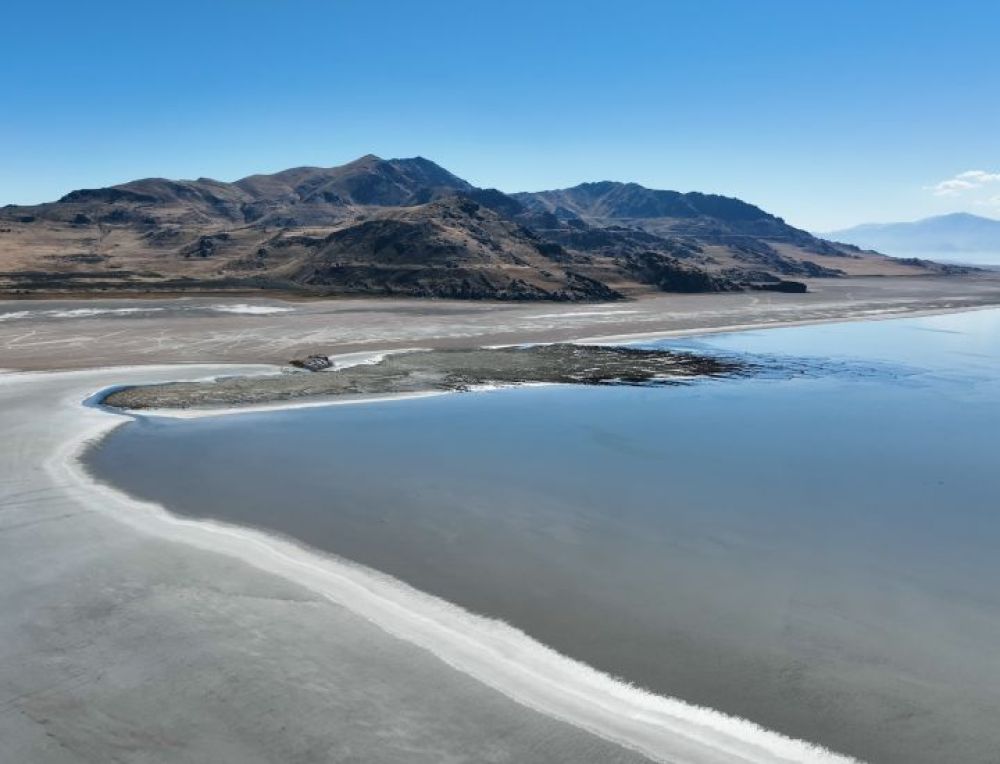Water for the Great Salt Lake

Unless you’ve been living with your eyes shut and your hands covering your ears, you’ve probably heard something about the Great Salt Lake and its very low water level. In fact, the news is pretty dire. The intermountain west has been suffering a megadrought over the last twenty years. Drought conditions, coupled with high water use by humans in the region, means that very little water is making its way into Great Salt Lake. As a result, the lake is shrinking fast. This year, we saw multiple historic lows in water levels for the lake. Lower water levels means that the area of the lake is shrinking as the shoreline recedes. The surface area of Great Salt Lake was 3,300 square miles in the 1980s. It is currently less than 1,000 square miles.
A shrinking lake is an ecological disaster. It means less habitat for the millions of birds that rely on the lake and its surrounding wetlands for breeding, wintering, and staging throughout the year. It means the possible collapse of the brine flies and brine shrimp populations in the lake – the food source for most of those birds. It also means a human health crisis as heavy metals that have been previously covered on the lake bed will be kicked up by wind and add toxic dust to our already poor air quality.
We need water in the lake. And, in our small way, the Aviary is trying to help with that. In a recent update to the Tracy Aviary Conservation Fund Allocation Plan, the Aviary’s conservation committee has designated a part of that fund (up to $40,000) to help acquire water rights to put water into Great Salt Lake. We are pursuing a couple options for that money. We might work with a group trying to secure water for the wetlands at the Bear River Migratory Bird Refuge. Or, we might put that money toward the Great Salt Lake water trust, which is being facilitated by National Audubon and The Nature Conservancy to enhance water quantity and quality going to Great Salt Lake. Either way, we are glad to be able to do our small part to help Great Salt Lake.
By: Cooper Farr